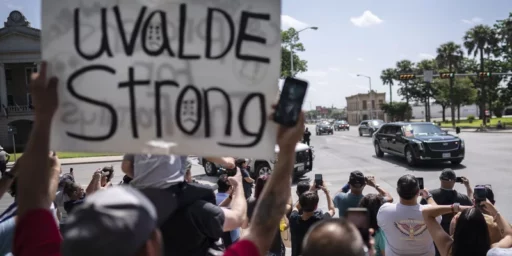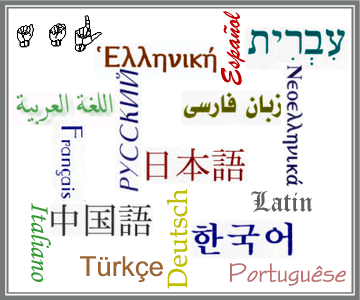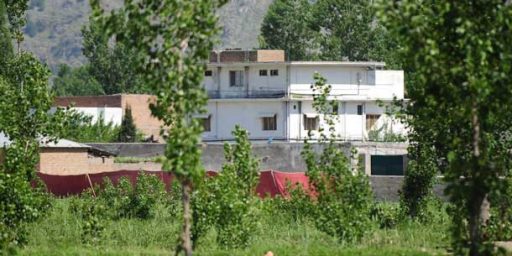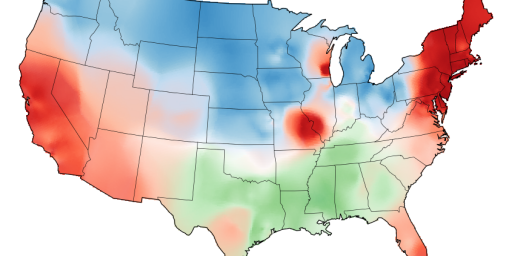Pronouncing ‘Foreign’ Names
 Steve Benen brings up a point I’ve seen made in a few places recently: Dickering over how to pronounce “foreign” names like Sotomayor or Pakistan.
Steve Benen brings up a point I’ve seen made in a few places recently: Dickering over how to pronounce “foreign” names like Sotomayor or Pakistan.
I’m in agreement with Mark Krikorian that “Deferring to people’s own pronunciation of their names should obviously be our first inclination, but there ought to be limits.” Where to draw the line, however, is unclear.
He continues that “Putting the emphasis on the final syllable of Sotomayor is unnatural in English (which is why the president stopped doing it after the first time at his press conference).” That was probably the case twenty years ago but, although I’d only read Sotomayor’s name until this morning, my mental pronunciation of it in fact put the emphasis on the final syllable. Hispanic names are now sufficiently common that they’ve become part of American culture.
But it’s a complicated matter. Oftentimes, it’s not immediately obvious to an untrained observer whether a name is, say, Hispanic or Italian. Or, whether one’s family has Anglicized the name along the way. For example, on last week’s Best. OTB Radio. Ever., it occurred to me that although I’d been reading Bill Roggio for years, I didn’t know how he pronounced his name. My internal version was something like “ROW gee Oh” and it turned out to be more like “RAH ghee Oh.”
On the issue of country names, I grew up with EAR-ahn and EAR-ock but the American pronunciation has mostly changed to EYE RAN and ERE rack; my pronunciation likely varies with context. I’ve always pronounced Pakistan as PAK ih STAN and will likely resist the conversion to POWCK ee STAWN. (In those cases, incidentally, the issue isn’t “native” pronunciation but rather British English versus the American version, since the names were imposed by colonialists.)
Similarly, I say Munich, Rome, and Florence rather than München, Roma, and Firenza.
Ultimately, American English both evolves and has regional variants. The further a foreign pronunciation differs from sounds familiar in American English and its local dialects, the less likely we are to adopt it. But once-unfamiliar names can become familiar over time. I’m sure even in Tuscaloosa, they pronounce our president’s name “Oh BOM uh” rather than the more natural “Oh BAM uh.”
Photo by Flickr user avlxyz under Creative Commons license.






There once was a classical music DJ in Boston who, I claimed, had two accents he used when pronouncing foreign names: French and Other.
That’s one of Dave Schuler’s pet peeves. For example, Americans pronounce “Beijing” as “bay ZHING” rather than the more proper “bay JING.”
No. Pakistan is a proper Urdu word, and was not “imposed” by colonialists. India, OTOH, is not a word in any Indian language. In Hindi, for example, India is called “Bharath” (BHA rath)
When it comes to place names and foreign words, I’m all for giving some leeway. I say Amarillo with a hard L and pronounce denouement as Day-New-Mint, mostly because that sounds better than the French pronunciation.
But I draw the line at names for people. It’s a respect thing. (After all, places and languages don’t have the capacity to be offended.)
If John Boehner says it’s “Bay-ner” and you keep calling him Boner, then who’s the jerk? Certainly not the guy with the funny name…
Ramki:
Wikipedia on the etymology:
Beyond that, the pronunciation of the word is what’s under discussion here. Pakistan speaks British English and that’s what gave the word the pronunciation.
I generally agree. Both Boehner and Sotomayor are relatively easy to pronounce once you’ve heard them. Some Eastern European and Asian names, however, are virtually unpronounceable for tongues trained in English.
I have a Scandinavian name. It would be jarring for me to switch to Scandinavian pronunciation late in life, just the same I’m fine with the trend toward original pronunciation … when it’s globalization and not affectation.
You can continue calling me FAH-oos-tah.
I like the variety and challenge of original pronunciations. But sometimes, you just need to communicate and if the listener immediately understands what you mean by your alternate pronunciation, then all is fine.
I am reminded of the old George Carlin line about how “Your name can be spelled S-M-I-T-H and you can pronouce it Janowski if you want to. (Hint… the W is pronounced as a V)
All I know is that I would prefer to hold the poached egg with my lentil soup.
Por favor.
Ya know, it is interesting that this should come up so close in time to the issue of courtesy and practice over the use of titles, and noting how the two issues are different and alike.
What bugs me about Pakistan is that my son’s GI was a native of Pakistan (she actually went back to Pakistan after 9-11 to be close to her family)-she pronounced it Pack-i-stan, just like I do and not like Obama does. I will defer to her version and am more than willing to bet that there are probably more ways to pronounce it than just those two.
Also sometimes you can’t even defer to the family member. We had a child whose last name was Dubois. Her mother said pronounced it Doo-boy-z and her father Doo-bwa and the child didn’t care either way.
And there are also US regional differences. Shoot my father’s mother was a Bach in Eastern Kentucky, but nobody in Eastern Kentucky use the rhymes with rock pronunciation-they all pronounced it like back.
Let’s Call the Whole Thing Off
Things have come to a pretty pass,
Our romance is growing flat,
For you like this and the other
While I go for this and that.
Goodness knows what the end will be;
Oh, I don’t know where I’m at…
It looks as if we two will never be one,
Something must be done.
You say either and I say eyether,
You say neither and I say nyther;
Either, eyether, neether, nyther,
Let’s call the whole thing off!
You like potato and I like potaeto,
You like tomato and I like tomaeto;
Potato, potaeto, tomato, tomaeto!
Let’s call the whole thing off!
But oh! If we call the whole thing off,
Then we must part.
And oh! If we ever part,
Then that might break my heart!
So, if you like pajamas and I like pajahmas,
I’ll wear pajamas and give up pajahmas.
For we know we need each other,
So we better call the calling off off.
Let’s call the whole thing off!
You say laughter and I say lawfter,
You say after and I say awfter;
Laughter, lawfter, after, awfter,
Let’s call the whole thing off!
You like vanilla and I like vanella,
You, say parilla and I say parella;
Vanilla, vanella, Chocolate, strawberry!
So, if you go for oysters and I go for orsters
I’ll order oysters and cancel the orsters.
For we know we need each other,
So we better call the calling off off!
And, of course, the absolute tops for the foregoing: Fred and Ginger
On a related note, a pet peeve of mine in the 80s was hearing American news anchors pronounce Nicaragua with a faux-Spanish accent.
Fake?
I wonder if it’s not just that they were trying to use the pro that Nicaraguans use, of courtesy.
(Snicker)
I’d love to see the talking heads stumble over sounds that don’t exist in American English. There is no way I’d attempt pronouncing anything in Xhosa (lots of clocks and clicks, you may have heard it in “The Gods Must be Crazy”). Or an aspirated consonant.
After lots of practice (I lived there for two years), I can pronounce most of the words in Icelandic, a Germanic language considered close to English. I had to learn to say and hear sounds that do not exist in English (lots of asperated consonants). I can’t speak the language (the grammar is a bitch) but I can pronounce it, and you are saying Reykjavik wrong from the locals perspective, but they say folks from Hofn (Hup) on East Iceland say it wrong too.
I say rek-ya-veek, not rek-ya-vik because all of the sounds exist in English (and it is closer to the original). I can give it an Icelandic pronunciation, but it doesn’t sound right in English. And English is the language I’m speaking. (I do like the soft versus hard TH in Icelandic – then versus thin – Middle English had something comparable).
And don’t even get me started on everyone’s mispronunciation of Al Qaida (anglicized, I’d make it Al Cah-i-duh, four syllables). There’s a consonant between the a and the i, unpronounceable by most native English speakers, so those vowels don’t form a dipthong.
I had a lot of trouble with this when living in the Netherlands and am still unable to correctly pronounce my wife or mother-in-law’s names after 8 years, damn Dutch Gs.